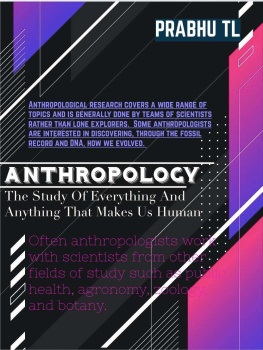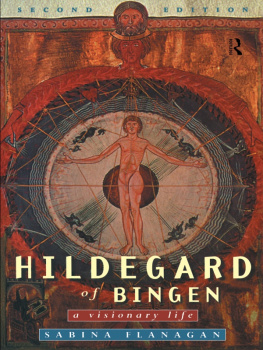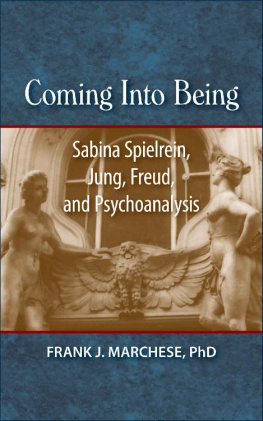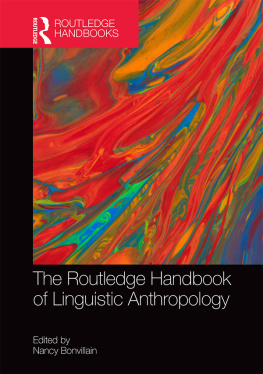Research Methods in Linguistic Anthropology
OTHER TITLES IN THE RESEARCH METHODS IN LINGUISTICS SERIES
Data Collection Research Methods in Applied Linguistics, Heath Rose, Jim McKinley and Jessica Briggs Baffoe-Djan
Experimental Research Methods in Language Learning, Aek Phakiti
Experimental Research Methods in Sociolinguistics, Katie Drager
Quantitative Research in Linguistics, Sebastian Rasinger
Research Methods in Applied Linguistics, edited by Brian Paltridge and Aek Phakiti
Research Methods in Interpreting, Sandra Hale and Jemina Napier
Research Methods in Linguistics, edited by Lia Litosseliti
Steven P. Black is Associate Professor of Anthropology at Georgia State University. He has conducted research on global health discourses since 2008 with a focus on ethics, speech play, and performance. He is the author of Speech and Song at the Margins of Global Health: Zulu Tradition, HIV Stigma, and AIDS Activism in South Africa (Rutgers, 2019), is coeditor of a special issue of Medical Anthropology titled, Communicating Care, and has also published articles in numerous edited volumes and in journals including American Anthropologist, Annual Review of Anthropology, Ethos, Journal of Linguistic Anthropology, Language in Society, and Medical Anthropology. His current research project, funded by National Geographic, is a collaborative multimedia ethnography based on fieldwork in Boruca Indigenous Territory, Costa Rica, and on indigenous knowledge, planetary health, and cultural sustainability.
Lydia Catedral is Assistant Professor in the Department of Linguistics and Translation at City University of Hong Kong. She is a sociolinguist whose research focuses on the intersections between language, identity, and morality across time and space, and the implications for marginalized groups including transnational migrants, domestic workers, and LGBTQ Christians. She has published in Language and Communication, Language Policy, and Discourse and Society. Her recent coauthored book, Chronotopes and Migration: Language, Social Imagination, and Behavior, published by Routledge, presents a chronotopic and scalar approach to sociolinguistic behavior in general and to the issues of migration and marginality more specifically.
Elaine Chun is Associate Professor of English and Linguistics at the University of South Carolina. Her linguistic anthropological research examines ideologies of language, race, and racism in the United States and transnational social media spaces. Drawing on methods of interactional analysis and ethnography, she has investigated language parody among multiethnic youth, representations of Asian speakers in popular media, and linguistic hybridity in transnational youth spaces. Her work has appeared in Language in Society, Journal of Linguistic Anthropology, Pragmatics, Language & Communication, American Speech, and Discourse & Society.
Robin Conley Riner is Associate Professor of Anthropology at Marshall University. Her book, Confronting the Death Penalty: How Language Influences Jurors in Capital Cases (Oxford, 2015), investigates how language shapes jurors experiences during capital trials and impacts their life and death decisions. She also has a coedited book, Language and Social Justice in Practice (Routledge, 2018), which addresses the relationship between communicative practices and the creation of more just societies. Her most recent research project uses video ethnography to explore yoga and embodied communication as therapy for moral injury among military veterans. She teaches courses in cultural, linguistic, and legal anthropology.
Archie Crowley is a Linguistics doctoral student at the University of South Carolina. Their research focuses on language practices, ideologies, and activism within online and offline trans communities. Crowley is involved in various projects and organizations that facilitate greater affirmation of trans, nonbinary, and queer communities, including UofSCs LBGTQ+ Grad Student Affinity Group, the Harriet Hancock Centers Nonbinary Peer Support Group, and the Committee for LGBTQ+ [Z] Issues in Linguistics (COZIL) for the Linguistic Society of America.
Sonia Neela Das is Associate Professor of Linguistic Anthropology at New York University. Combining ethnographic, linguistic, bibliographical, and archival methods, she investigates how linguistic forms and ideologies interface with communicative practices to contribute to social inequality in Canada, the United States, and South Asia. Her current research analyzes the institutional, interactional, and ideological factors producing escalation, violence, and unfair legal outcomes ensuing from racially charged police-civilian interactions in the US South. She also investigates technocratic ideologies about unsociability among commercial seafarers. Her first monograph, Linguistic Rivalries: Tamil Migrants and Anglo-Franco Conflicts, won Honorable Mention for the Sapir Book Prize by the Society for Linguistic Anthropology. She is the recipient of grants from the National Science Foundation, Association for Canadian Studies in the United States, and Wenner-Gren Foundation. She is coeditor-in-chief of the flagship Journal of Linguistic Anthropology and a Junior Fellow in the Mellon Society of Fellows in Critical Bibliography.
Ilana Gershon is Ruth N. Halls Professor of Anthropology at Indiana University and studies how people use new media to accomplish complicated social tasks such as breaking up with lovers and hiring new employees. She has published books such as The Breakup 2.0, Down and Out in the New Economy and edited A World of Work: Imagined Manuals for Real Jobs, and Living with Animals. She has been a fellow at Stanfords Center for Advanced Study in the Behavioral Sciences, Notre Dames Institute for Advanced Study, and is presently a visiting professor at the University of Helsinki. She is currently studying how working in person during a pandemic sheds light on the ways workplaces function as private governments.
Jan David Hauck is British Academy Newton International Fellow in the Department of Anthropology at the London School of Economics and Political Science. He has used video extensively in his research, recording verbal art, narratives, and cultural practices in a project to document the indigenous Ach language in Paraguay, as well as in a video-based socialization study of Ach children, recording interactions in childrens peer groups, with caregivers, and with a variety of nonhumans in a village and on forest hunting treks. His theoretical interests are on the perception of language and linguistic difference, the ontological underpinnings of conceptions of language, language ideologies, ethics and morality, cooperation, child development, the perception of the environment, and human-nonhuman interactions.
Deborah A. Jones is Postdoctoral Fellow at the Max Planck Institute for Social Anthropology in Halle (Saale), Germany, where she specializes in the study of language, ethics, and political economy. She is currently preparing a monograph on language and violence in Ukraine, where linguistic differences are often cited as a factor in the war in the countrys east, but suppositions about the sort of speech that incites, prevents, or facilitates healing from conflict have proven much more varied. Another project, pursued as part of the Max PlanckCambridge Centre for Ethics, Economy, and Social Change, focuses on ghostwriting and the relinquishment of authorship in the digital age.









